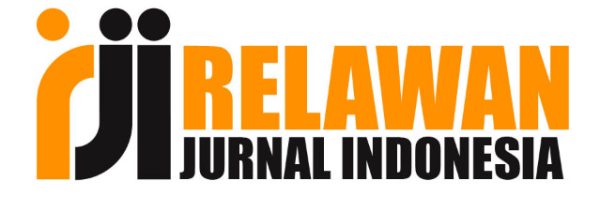Three-dimensional Natural Combination, Covenant, Fitrah, and Maqasid
Towards the Current Legitimacy of the Science of Jurisprudence
DOI:
https://doi.org/10.52100/jcms.v3i1.131Keywords:
shari’ah, fiqh, meethaq, fitrah, maqasid, ethicsAbstract
The aim of the rise of the science of jurisprudence, fiqh comes together in an instrumental pattern, that assumes the disciplinary formulation of human conduct, thus achieving legal and moral objectives, by which to preserve the moral essence of man. When we analyse the cognitive and methodological context of fiqh, we find out that its systematic structure is revealed through the existence of an authority that guarantees legitimacy. By that, we mean the charter in its communicative and then applied style, which has been ensured qualitatively by Sunnah. Within the framework of the charter, the jurist compares the event which occurs in the existential experience, with the referential law of Sharia, in order to infer a ruling. This has a role in constructing the disciplinary status of human conduct. In fact, it is the same practical process that the moralist launches in the field of applied ethics, within a secular framework, and a rational tool The current condition is subject of a normative confusion that has afflicted humanity with moral and normative deafness, and it is thus similar to what afflicted it at the Tower of Babel, as the lack of understanding has moved from language to moral standards. The implied understanding in knowledge of moral standards has disappeared because nihilism and ambiguity are controlling the existential aspect of humanity. The sign of this referential dispersion and the values disappearance has impelled the quest for a philosophical field, in order to reformulate morality, as the adjacent crisis nowadays is ethical par excellence. Accordingly, philosophy has its role in reviving the ethical concern through examination and investigation. In this context, fiqh as an Islamic account has the merit in moral disciplinary awareness that would re-intensify the shaky looseness of the present morality, and the purposeful reconsideration of the contemporary human condition.References
Abd al-Rahman. T. (2017). Mina al-Fiqh al-I’timari ila al-Fiqh al-I’timani, Usul al-Nadhar al-I’timani, vol.1., Beirut: al-Muassasah al-Arabiyyah lil Nashr wa al-Ibda’e.
Abd al-Rahman. T. (2000), al-Aql al-Dini wa Tjdid al-Aql (3rd ed.) Beirut: al-Markaz al-Thaqafi al-Arabi.
Al-Alwani, T. J. (2000), Maqasid al-Shari’ah, Beirut: Dar al-Hadi.
‘Atif, A. (1917), Futur al-Shari’ah (1st ed), Tal’at Faruq Trans., Beirut: al-Shabakah al-Arabiyyah lil-Abhath.
Bauman, Z., Bordoni, C. (2017), Halat al-Azmah, Hajjaj Abu Jbar Trans., Beirut: al-Shabakah al-Arabiyyah lil Abhath wa-Nashr.
Canto-Sperber, M. (2001). Dictionary of Ethics and Moral Philosophy (1st ed.).
Descartes, R. (1825). Metaphysical Meditations. Tunis : Cérès Editions.
Al-Jarjani, A. A. (1992). Al-Ta’reefaat, Beirut: Dar al-Kitab al-Arabi
Jonas, H., & Greisch, J. (1990). The Responsibility Principle: An Ethics for Technological Civilization . Les Editions du Cerf.
Hallaq, W. B. (2016). Al-Dawlah al-Mustahilah- al-Islam wa Assiyassah wa Ma’ziq al-Hadathah al-Akhlaqiyyah (4th ed.), Amro Othman Trans., Doha: al-Markaz al-Arabi lil Abhath wa Dirassat As-Siyassat.
Hallaq, W. B. (2016). Mahiyah al-Shari’ah, Tahirah ‘Amirah Trans., Beirut: Markaz Namaa lil Buhuth wa-Dirassat.
Hallaq, W. B. (2017). Madkhal ila al-Shari’ah al-Islamiyyah, Tahirah ‘Amirah Trans., Beirut: Markaz Namaa lil Buhuth wa-Dirassat.
Hallaq, W. B. (2007). Nash’at al-Fiqh al-Islami wa Tatawwurih, Riyad al-Miladi Trans., Beirut: al-Madar al-Islami.
Hobbes, T. (1991). Of human nature . Paris: Philosophical Library J. Vrin.
Ibn Hazm, M. A. (1983), al-Ihkam fi Usul al-Ahkam (2nd ed.), Beirut: Dar al-Afaq al-Jadidah.
Ibn Rush, M. I. A. (1999), Bidayat al-Mujtahid wa Nihayat al-Muqtasid (1st ed.), Beirut: Dar Ibn Hazm.
Al-Ghazali A. H. (2003). Ihyae Ulul al-Din, Beirut: Dar al-Fikr lil-Tiba’ah wa-Nashr.
Kant, I. (1991). Muqaddimah li kulli Metafiziqah Muqbilah Matbu’ bi Metafiziqah al-Akhlaq, Fathi Shniti Trans., Algeria: Mufm lil-Nashr.
Kant, I. (2005). Ma Howa al-Tanwir? Yusof al-Siddiq Trans., al-Majallah al-Tunissiyah lil Diraasat al-Falsafiyyah 38(39).
Lipovetsky, G. (2006). Paradoxical happiness, Paris: Gallimard.
Lipovetsky, G. (1993). The Era of the Void, essay on contemporary individualism. Paris: Gallimard.
Mayet, L. (2002The Ethical Boom, Revue Sciences Et Avenir.
Morin, E. (2009), Ila Ayna Yasir al-‘Alam (1st ed.), Ahmad Ali Trans., Beirut: al-Dar al-Arabiyyah lil Ulum.
Al-Najjar. A. A. (1994). Fi al-Manhaj al-Tatbiqi lil Shari’ah al-Islamiyyah, Riyadh : Dar al-Nashr al-Dawly.
Russel, B. (n.d), al-Mujtama’ al-Bashari fi al-Akhlaq wa al-Siyassah, Egypt: al-Lajnah al-Masriyyah li-Talif.
Al-Shatibi, A. I. (n.d), al-Muwafaqaat fi Ilm al-Shari’ah, Beirut: Dar al-Kutub al-Ilmiyyah.
Al-Shafi’i, M. I. I. (1999), al-Risaalah, Beirut: Dar al-Kitab al-Arabi.
Taylor, C. (2014), Manabi’ al-That- Takawwun al-Hawiyyah al-Hadithah, Haidar Haj Ismail Trans., Beirut: Markaz Dirasat al-Wihdah al-Arabiyyah
Yassin, A. J. (1998). Al-Sultah fi al-Islam- al-Aql al-Fiqhi bayna al-Nas wa-Tarikh, Beirut: al-Markaz al-Thaqafi al-Arabi.
Al-Zarkashi, B. D. (1994), al-Bahr al-Muhit fi Usul al-Fiqh (1st ed.), Cairo: Dar al-Kutub
Downloads
Published
How to Cite
Issue
Section
License
Copyright (c) 2024 Journal of Contemporary Maqasid Studies

This work is licensed under a Creative Commons Attribution-NonCommercial 4.0 International License.






